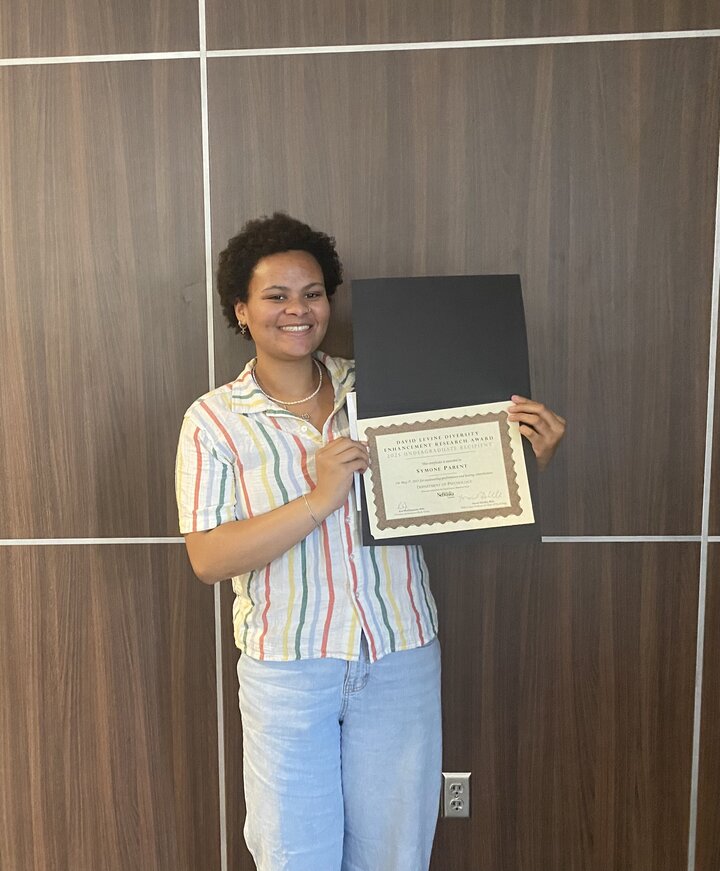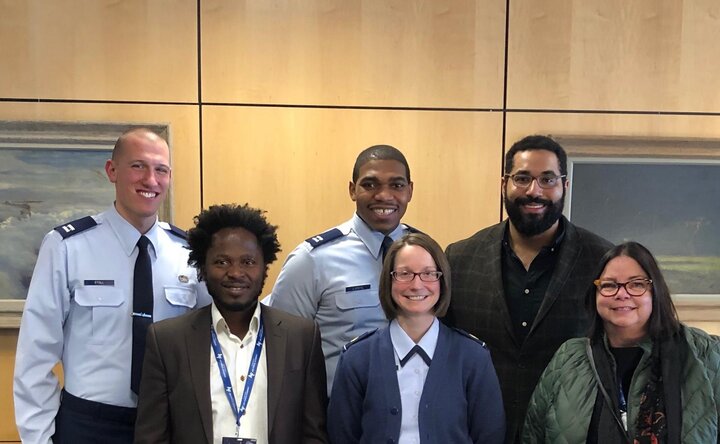The research in the lab is focused on the social cognitive processes and motivations that accompany the constructs of race and ethnicity and produce biases. Our research examines the origins of "racial" and ethnic stereotypes and their influence on the processing of social information and interpretation of social behavior. For example, we examine the influence of racial and ethnic bias on culpability attributions in the legal system. We are interested in ideology and the effect on attributions and decision making for ethnic groups, in areas such as immigration and justice issues. We examine the ways in which ethnic identity can effect daily life, including as a buffer for the effects of bias. Students interested in potentially joining the lab may contact Gabriel Zita at gzitaaraujo2@huskers.unl.edu.

Symone Parent wins the David Levine Diversity Enhancement Award 2025

Carlos Tavira Villegas graduated with distinction in May 2025! Thank you for your work on the senior thesis Bridging the Gap: Stress and Support Systems for Underrepresented Students Pursuing Graduate Education. Congratulations! Felicidades!
Journal Article Reporting Standards from APA. https://apastyle.apa.org/jars/race-ethnicity-culture
Recorded talk at the United Air Force Academy, Colorado Springs, CO. See https://www.youtube.com/watch?v=oA3o9KNO-7M
The Panel "Colloquium on Racial Justice: What Is Critical Race Theory Anyway, and Why Do Politicians Care Whether It’s Taught?" was held on October 14, 2021. https://ethnicstudies.unl.edu/news-and-events.
In response to attempts to ban the teaching of critical race theory, the Institute of Ethnic Studies has issued a statement, which can be found at https://ethnicstudies.unl.edu/advocacy-statements. There are many theories that help to explain racial disparities and injustice, dating back to the late 1800s/early 1900s. Critical race theory is only one such approach, used to examine how disparities originate and persist. CRT is an approach to examine the treatment of BIPOC in the United States, as well as some Whites, who at one time were not considered White (i.e., the Irish, Italians, etc.). As scholars, we strive to examine issues from a multitude of perspectives in order to understand our world. CRT is one of those perspectives.
Research by Kendra Quiroz in the lab! Watch the presentation of findings here: https://use.vg/jtaVly
Video on protests and racial justice from psychologists at:
https://www.nbcnews.com/video/repression-suppression-violence-how-protests-become-riots-84941381862
See my comments in the PBS article George Floyd Protests Spread to Small Towns at https://www.pbs.org/newshour/nation/george-floyd-protests-spread-to-smaller-mostly-white-towns?fbclid=IwAR277t1IJPkkLE4TUTJYEvkuaZbU3PKw1-mnLc8UrBhZPOL2m_FXVEcHSxY
See my comments in the Vox news article, White Americans are Finally Talking About Racism: Will It Translate Into Action? at https://www.vox.com/2020/6/11/21286642/george-floyd-protests-white-people-police-racism
